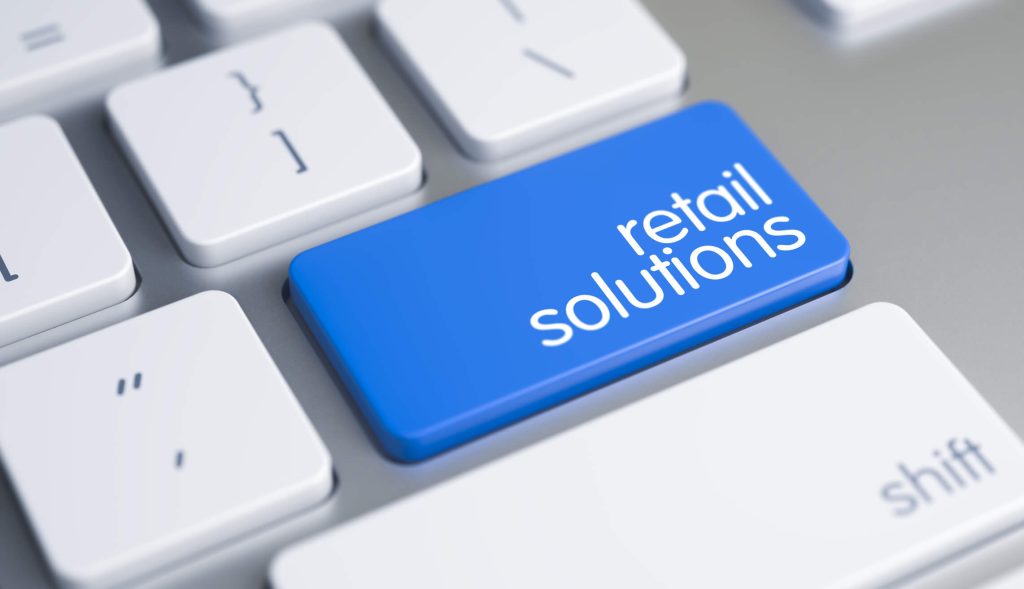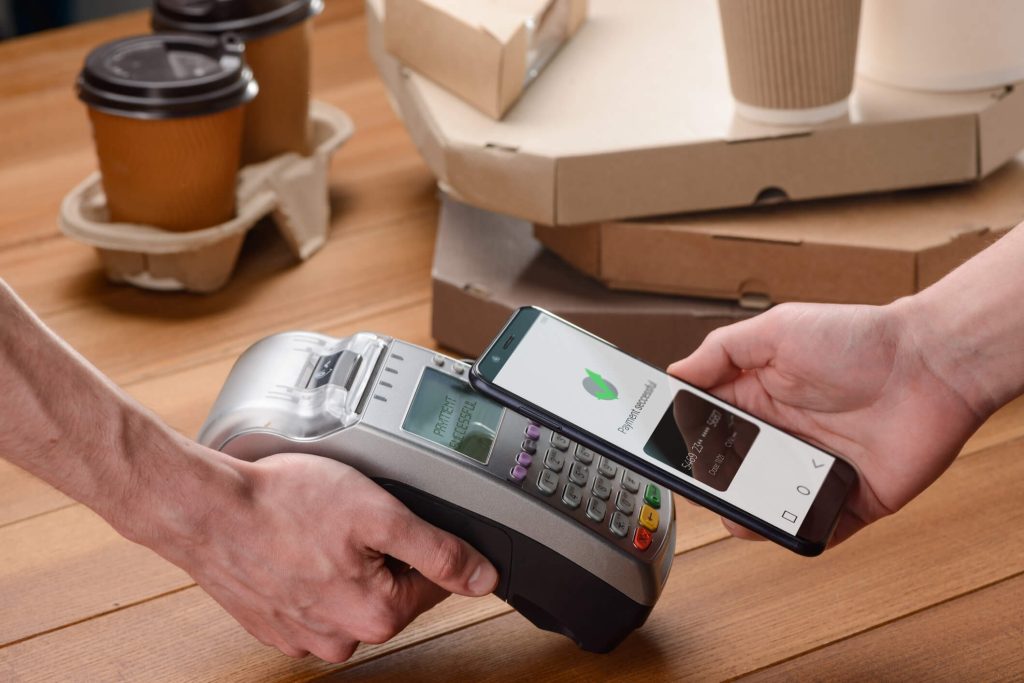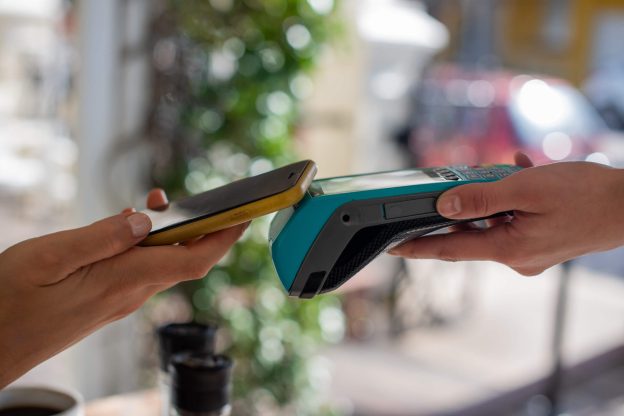In the fast-paced world of retail, having an efficient and effective point of sale (POS) system is crucial for success. A POS solution is a software and hardware combination that allows retailers to process transactions, manage inventory, and track sales. It serves as the central hub for all retail operations, providing real-time data and insights that can help businesses make informed decisions.
One of the key reasons why POS solutions are important in retail is their ability to streamline operations. With a POS system, retailers can automate various tasks, such as inventory management, sales tracking, and customer relationship management. This automation not only saves time but also reduces the risk of human error, ensuring accurate and reliable data.
Additionally, a POS solution provides retailers with valuable insights into their business performance. By analyzing sales data, retailers can identify trends, understand customer preferences, and make data-driven decisions. This information can be used to optimize inventory levels, adjust pricing strategies, and improve overall customer satisfaction.
How POS Solutions Streamline Retail Operations?
POS solutions offer a wide range of features that can streamline retail operations. One of the key features is inventory management. With a POS system, retailers can easily track inventory levels, set up automatic reordering, and receive alerts when stock is running low. This ensures that retailers never run out of popular items and can meet customer demand effectively.
Another important aspect of retail operations that can be streamlined with a POS solution is sales tracking. A POS system allows retailers to track sales in real-time, providing them with up-to-date information on revenue, profit margins, and sales performance. This data can be used to identify top-selling products, monitor the effectiveness of marketing campaigns, and make informed decisions about pricing and promotions.
Furthermore, a POS solution can simplify the checkout process for both retailers and customers. With features like barcode scanning, integrated payment processing, and receipt printing, retailers can process transactions quickly and efficiently. This not only reduces waiting times for customers but also improves overall customer satisfaction.
Key Features to Look for in a Retail POS Solution

When choosing a POS solution for a retail business, it is important to consider the key features that will best meet the specific needs of the business. Some of the essential features to look for include:
- Inventory management: A robust inventory management feature allows retailers to track stock levels, set up automatic reordering, and generate reports on inventory performance.
- Sales tracking and reporting: The POS system should provide real-time data on sales, revenue, and profit margins. It should also offer customizable reports that can help retailers analyze sales trends and make informed decisions.
- Integration with other business systems: A retail POS solution should be able to integrate with other business systems, such as accounting software, customer relationship management (CRM) tools, and e-commerce platforms. This integration ensures seamless data flow between different systems and eliminates the need for manual data entry.
- Security measures: Security is a critical aspect of any POS solution. Look for features like encryption, tokenization, and secure payment processing to protect customer data and prevent fraud.
- Scalability: As a retail business grows, its POS needs may change. A scalable POS solution can accommodate the changing needs of the business, whether it is adding new locations, expanding product lines, or integrating with new technologies.
Different Types of POS Solutions for Retail Businesses
There are several types of POS solutions available for retail businesses, each with its own set of features and functionalities. The most common types include:
Traditional POS systems
These are hardware-based systems that consist of a cash register, barcode scanner, receipt printer, and other peripherals. Traditional POS systems are typically installed on-site and require upfront investment in hardware and software licenses.
Cloud-based POS systems

Cloud-based POS systems are becoming increasingly popular among retailers. These systems are hosted on remote servers and accessed through the internet. They offer the advantage of being accessible from anywhere, on any device, and can be easily scaled up or down as needed.
Mobile POS systems

Mobile POS systems are designed to run on mobile devices like tablets and smartphones. They are ideal for small businesses or retailers with limited counter space. Mobile POS systems offer flexibility and mobility, allowing retailers to process transactions on the go.
Self-service kiosks
Self-service kiosks are becoming more common in retail environments. These kiosks allow customers to browse products, place orders, and make payments without the assistance of a sales associate. Self-service kiosks can help reduce wait times and improve customer satisfaction.
Choosing the Right POS Solution for Your Retail Business
Choosing the right POS solution for a retail business can be a daunting task. With so many options available, it is important to consider the specific needs and requirements of the business. Here are some factors to consider when selecting a POS solution:
- Size and type of business: The size and type of business will determine the complexity and scalability of the POS solution needed. Small businesses may benefit from a simple, cloud-based POS system, while larger businesses may require a more robust solution with advanced features.
- Budget: Consider the upfront costs, ongoing fees, and potential return on investment when evaluating different POS solutions. It is important to find a solution that fits within the budget of the business while providing the necessary features and functionalities.
- Integration capabilities: If the business already uses other software systems, such as accounting or CRM tools, it is important to choose a POS solution that can integrate seamlessly with these systems. This integration will ensure that data flows smoothly between different systems, eliminating the need for manual data entry.
- User-friendliness: The ease of use of the POS solution is an important factor to consider. Look for a solution that has an intuitive interface, requires minimal training, and offers ongoing support and training resources.
- Customer support: Consider the level of customer support offered by the POS solution provider. Look for a provider that offers 24/7 support, regular software updates, and a dedicated account manager.
Implementing a POS Solution in a Retail Business: Step-by-Step Guide
Implementing a POS solution in a retail business requires careful planning and execution. Here is a step-by-step guide to help businesses navigate the implementation process:
- Assess business needs: Before implementing a POS solution, it is important to assess the specific needs and requirements of the business. Identify the key pain points and challenges that the POS solution should address.
- Research and evaluate options: Research different POS solutions and evaluate them based on the needs of the business. Consider factors such as features, pricing, scalability, and customer reviews.
- Choose a POS solution: Select the POS solution that best meets the needs of the business. Consider factors such as cost, features, ease of use, and integration capabilities.
- Prepare data: Gather and organize all relevant data, such as product information, pricing, and customer data. Clean and validate the data to ensure accuracy.
- Train staff: Provide comprehensive training to staff members who will be using the POS solution. Ensure that they are familiar with all features and functionalities and can troubleshoot common issues.
- Set up hardware and software: Install and configure the POS hardware and software. Test all components to ensure they are functioning properly.
- Import data: Import all relevant data into the POS system, such as product information, pricing, and customer data. Verify the accuracy of the imported data.
- Test and troubleshoot: Conduct thorough testing of the POS system to ensure that all features and functionalities are working as expected. Identify and resolve any issues or bugs.
- Go live: Once all testing and troubleshooting are complete, it is time to go live with the POS system. Monitor the system closely during the initial days to identify any issues and address them promptly.
- Provide ongoing support and training: Offer ongoing support and training to staff members to ensure they are comfortable using the POS system. Stay updated with software updates and new features.
Common Challenges and Solutions in Retail POS Implementation
Implementing a POS solution in a retail business can come with its own set of challenges. Here are some common challenges and their solutions:
- Data migration: Transferring data from existing systems to the new POS solution can be a complex and time-consuming process. To overcome this challenge, businesses should ensure that data is clean, validated, and organized before the migration process. It is also important to have a backup of the data in case of any issues during the migration.
- Staff training: Training staff members on how to use the new POS solution can be a challenge, especially if they are not tech-savvy. To address this challenge, businesses should provide comprehensive training sessions, offer ongoing support, and create user-friendly training materials.
- Integration with existing systems: Integrating the new POS solution with existing systems, such as accounting or CRM tools, can be a challenge. To overcome this, businesses should choose a POS solution that offers seamless integration capabilities and work closely with the POS provider to ensure a smooth integration process.
- Technical issues: Technical issues, such as hardware malfunctions or software bugs, can disrupt retail operations. To address this challenge, businesses should have a dedicated IT support team or work with a reliable POS provider that offers 24/7 support.
- Resistance to change: Implementing a new POS solution may face resistance from staff members who are comfortable with the existing system. To overcome this challenge, businesses should communicate the benefits of the new system, provide training and support, and involve staff members in the decision-making process.
Frequently Asked Questions
Q.1: What is a POS solution, and why do retail businesses need it?
Answer: A POS solution is a software and hardware combination that allows retailers to process transactions, manage inventory, and track sales. Retail businesses need a POS solution to streamline operations, automate tasks, and gain valuable insights into their business performance.
Q.2: How can a POS solution help with inventory management?
Answer: A POS solution can help with inventory management by allowing retailers to track stock levels, set up automatic reordering, and receive alerts when stock is running low. This ensures that retailers never run out of popular items and can meet customer demand effectively.
Q.3: Can a retail POS solution integrate with other business systems?
Answer: Yes, many retail POS solutions offer integration capabilities with other business systems, such as accounting software, CRM tools, and e-commerce platforms. This integration ensures seamless data flow between different systems and eliminates the need for manual data entry.
Q.4: What security measures should retail businesses consider when using a POS solution?
Answer: Retail businesses should consider security measures such as encryption, tokenization, and secure payment processing to protect customer data and prevent fraud. It is also important to regularly update the POS system with the latest security patches and train staff members on best practices for data security.
Q.5: How can a POS solution enhance the customer experience in a retail store?
Answer: A POS solution can enhance the customer experience in a retail store by reducing waiting times at the checkout, offering multiple payment options, and providing personalized service. It can also help retailers track customer preferences and purchase history, allowing them to offer targeted promotions and recommendations.
Conclusion
In conclusion, POS solutions tailored for retail businesses play a crucial role in streamlining operations, improving efficiency, and enhancing the customer experience. With features like inventory management, sales tracking, and integration capabilities, POS solutions provide retailers with valuable insights and data that can help them make informed decisions.
In summary, investing in a robust and tailored POS solution is essential for retail businesses looking to optimize their operations, improve customer satisfaction, and drive growth. By understanding the importance of POS solutions, considering key features, and following a step-by-step implementation process, retailers can harness the power of technology to thrive in the retail industry.

